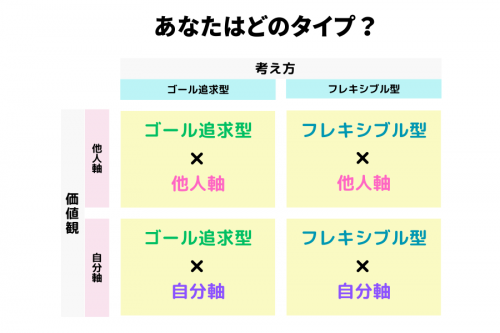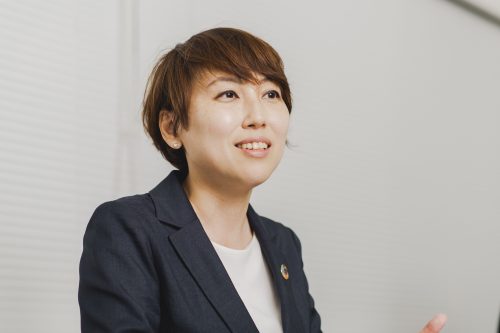When people are overwhelmed by work, housework, childcare, and other tasks, and have little time to spare both physically and mentally, it is easy for relationships with family members to become strained. Time management” is the key to escaping from such a situation. In this interview, we asked Ms. Aiko Bando, President of the Organization for Promotion of Career Development in Childrearing, a general incorporated association that provides career support for women, about the secrets of time management at home and the key points of time management for different types of people.

Limited time is like money or home space.
When I provide career support for women, I hear many women raising children say, “I have to do this and that for my family, but I don’t have enough time at all. In today’s information society, we are bombarded with information on “how to do this” for both housework and childcare, so the more people feel that they have to do it right, the more things they have to do. As a result, it tends to lead to depression and frustration when there is not enough time to do something that one had planned to do but could not.
For those who do, I recommend thinking of “time” in the same way as “money” or “house space.
Money is limited and you cannot buy everything you want to buy. It is the same with home space. You wouldn’t put a big sofa and table in a not-so-large living room, would you? But in the case of time, I feel that many people try to cram in everything they want to do.
Prioritize and make decisions to “reduce” or “stop.

The first thing to do in time management is to prioritize. List the “must-do” tasks and prioritize them. Then, make the decision to stop doing the things with the lowest priority, and try to reduce the number of “must-do’s” that have increased too much.
In fact, many people stumble here. This is because they think they need everything in the first place. If you find it difficult to make a decision on your own, you may need to consult with your family.
Here’s an example from the past. A woman thought she had to vacuum her living room every day. She told herself that it was because everyone in her family wanted her to do so, but when she asked her family about it, they told her that it was sufficient even if it was not every day. As a result, the woman was able to reduce the number of times she vacuumed the living room to once every two days.
Shortcuts to Time Management by Type
In order to manage your time better, it is recommended that you know what type of person you and others around you are. When you know your own tendencies, you will be able to see what you need to pay attention to. Knowing what type of people you are dealing with can also reduce friction with them.
Two categories of thinking: “goal-oriented” and “flexible”.
Goal Pursuing”: This type of person likes to plan and is motivated by setting goals and objectives. Good at ensuring projects are accomplished.
Flexible”: This type of person likes to “just do it anyway” and act on their moods and emotions. They are resourceful and resistant to accidents.
Two categories of values: “other-oriented type” and “self-oriented type.
Two types of values: “others-oriented type” and “self-oriented type
The “other-oriented type”: This type of person is happy to do things based on what others like to do. They are good at harmonizing with their surroundings.
Self-oriented type”: This type of person is happy to do things based on what he or she likes. They are quick to make decisions and have no hesitation.
Each type can be multiplied into four types.

Goal Pursuing” x “Other People’s Axis” type
It is possible that you may have overloaded your schedule to accommodate your surroundings, so it is important to “cut back” on what you do. Be careful that you are not scheduling too much to take into account your surroundings.
It is also important to create extra time by not overloading your schedule. It is easier to adjust your mindset if you are prepared to “just get it done in three days.
Goal Pursuing” x “Self-oriented” type
He is the most “inquisitive” of the four, and he is the type who just keeps going toward his goals without paying attention to the people around him. He is the type who is the most “inquisitive” among the four combinations, and he is the most determined to reach his goals without regard to the people around him. In such cases, think of the family as a team, make sure everyone in the family understands the goal, and raise awareness and morale so that the family will work toward that goal. It is a good idea to make sure that all family members are motivated and willing to work together.
This type of person is more likely to get things done according to their goals and plans if they are aware of what is going on around them and are in harmony with their surroundings. It is also important to consciously make time to share each other’s situations by telling each other your plans and asking about the other person’s situation and plans as well.
Flexible type” x “Others axis” type
This is the type of person who moves along with those around him or her without having set many goals, saying, “I want to do this or that for that person.” Even when they have a fixed goal that they have to do, when they receive a request from a parent or friend, they immediately respond to it and may act outside of the plan or goal that they originally set. We end up with more things to do, we are pressed for time, and we fail to do what we originally intended to do, or we forget.
What is important for this type of person is to have a general goal and sometimes to take a step back and think once, “Was that a good thing to do?” or “Is it really necessary?” instead of just feeling good.
I also recommend using a notebook to help you remember what you have to do and what your goals are.
Flexible” x “Self-oriented” type
He is a sensory person who moves according to his mood and also according to his own decisions, so he feels good and happy! In order not to let that freedom turn those around you around, it is important to establish rules with your family that will help you to be in harmony. Set a regular schedule for chores that must be done even if you don’t feel like it,
Cleaning is done on Tuesday and Friday mornings.
Dads are in charge of shopping for meals on Mondays and moms on Thursdays.
Make rules to keep the housework moving along, such as “I’m not going to do it all at once.
This type of person also tends to take a lot of detours, and if something catches their attention, they will say, “Let’s try that! If you are interested in something, you will say, “Let’s try that! It is recommended to have a rough goal or direction in mind so that you do not start without a plan and later say, “This was not supposed to happen.
Time management for the entire family requires “shared family goals

Time management for the entire family is also important.
Even family members who live together may each have things they “have to” do and things they “don’t want to” do. They also have different priorities. It is very difficult to manage time in such a situation. What is needed is to share “household goals” with family members.
For example, consider a family vacation.
The “Self-oriented” type tends to decide where to go on their own, causing the “Other-oriented” type to be bothered, and the “Flexible” type to feel constricted because the “Goal-pursuing” type has set a detailed plan. If different types of people say whatever they want to say, the plan will not progress, right? That is why it is necessary to have a “goal” that will serve as a guide in making decisions.
In my family, we share the goal of “valuing children’s experiences” as a family. Even when planning a trip, we start with places and activities that offer interesting experiences for the children and put them on the schedule first, and then adjust the other parts of the trip. This way, we can smoothly decide on the content and schedule of the trip.
Since this is true even for a trip of just a few days, it is better to create “family goals” that can be shared by all family members for the long haul, so that they can talk about them from the same perspective without clashing with each other, leading to smooth time management.
Don’t be bound by “what should be done,” but have the courage to “stop doing it” at times.
Even though we know in our heads that the times are changing, I feel that there are many people who have images of mothers and fathers that are “the way they should be” or “the way they should do” and who feel that they have to do them perfectly somewhere in their hearts. I feel that there are many people who feel they have to do everything perfectly. Therefore, when they think about time management, it is difficult for them to choose “stop. However, it is impossible to do everything at one’s best all the time. In the long run, it is important to find a place where you can take a break. When you reduce the number of things you have to do, it will be easier both physically and mentally.
The greatest benefit of good time management is that it gives you more time.
It is not an easy task, but let’s try to do our best little by little to spend a peaceful and smiling life with our families!

Aiko Bando
Representative Director, Childcare Career Advancement Promotion Organization, Inc.
Representative of Mom Community Mom Smile
Director of Nursery School Foresta Shimura Sanchome
Born in Hokkaido in 1981. After working as a system engineer at a major cell phone company, she became a full-time housewife upon marriage. After the birth of her first child, she experienced the isolation of raising a child, and with the aim of creating a place for mothers to connect with society, she launched and began activities with “Mom Smile,” a community for mothers that supports women in childcare to return to society. Through her activities, she sensed the challenges of women’s careers and the childcare field, and opened her own daycare center, Foresta Shimura Sanchome, and in 2019, she launched a general incorporated association, Childcare Career Development Promotion Organization, and started a training program on career support for childcare workers and mothers. She conducts time management courses and other courses specifically for mothers.











